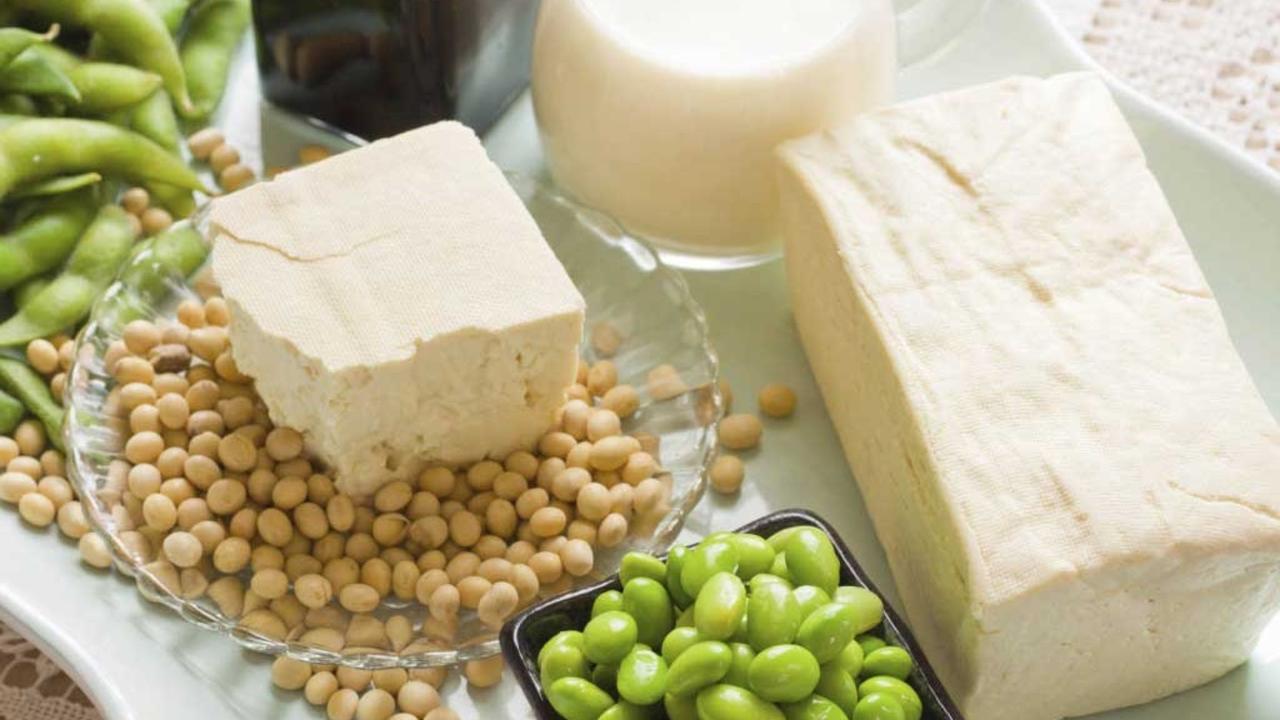
Is soy bad for you?
What about soy? Aren't you concerned about phytoestrogens in soy?
These are two of the many questions I often hear from people when they learn that I'm vegan. So allow me to put the soy fear to rest. The common fear is that soy has a negative effect on hormones.
Is soy a requirement for the vegan diet?
It's a myth that when we adopt a vegan lifestyle, we get a congratulatory kitchen stocked with soy products. There is no vegan membership requirement of a heavy dependence upon soy. Believe it or not, it is possible to be vegan and to never eat soy, though I don't think it's necessary to eschew it altogether unless there's an allergy.*
There are many different versions of soy, and I suggest choosing the least processed types, like edamame, tempeh, tofu, tamari (high-quality wheat-free soy sauce), and miso. If you do eat processed vegan meats and snack foods, consider eliminating or reducing them to very, very little.
There, the myth that soy foods are a requirement for vegans is debunked now, right? ;-)
Aren’t you concerned about phytoestrogens in soy?
It's important to understand where this fear comes from. My first thought when I hear a claim like this is to follow the money. Some of the questions I ask are:
- Who is saying it?
- Who gains financially when I follow this recommendation?
- What are the wide-ranging implications of acting on the advice?
The myth that we should be worried about phytoestrogens in soy has been widely spread by one organization with a very powerful propaganda machine with strong financial ties to the meat and dairy industry: the Weston A. Price Foundation (WAPF). Soy is a strong competitor to meat and dairy. Thus, it is those industries that stand to gain financially by perpetuating the fear that soy is problematic for hormones.
How are phytoestrogens and estrogens different?
Recognize that soy is a plant and humans are animals. The estrogens in soy are called “phytoestrogens,” phyto = plant, so it's a plant estrogen. The process an animal body (like our human bodies) must go through to convert plant estrogens into something usable is very complex and results in a significant drop-off or waste, which ends up with very little usable human estrogen in the end. The converted phytoestrogens are 1,000 times less potent than those in animal estrogen and aren’t easily absorbed by the human body. Thus, there is very little usable estrogen in soy.
In fact, the phytoestrogens in soy actually block our estrogen receptors, making it protective against hormone-related cancers like breast, ovary, endometrium, prostate, testicular, thyroid, and more. Check out this video by Dr. Michael Greger.
Here is an article about the safety of soy for cancer survivors.
What about the hormones in mammal’s milk?
When I nursed my daughter, my body was surging with hormones. It takes a lot of naturally-occurring hormones for a mammalian body to create and sustain a milk supply. While soy has phytoestrogens, which don't convert all that well into something usable by a human/animal body, cow’s milk contains: prolactin, IGF-1, prostaglandins, and steroids including estrogens, progesterone, corticoids, and androgens. Note that these are inherent, not added hormones, like rbST, the newer name for recombinant bovine growth hormone.
What about milking during pregnancy?
Cows are artificially inseminated about every 10 months to maintain milk flow (milk is only present after a birth). Throughout her pregnancy, while estrogen (and other hormones) levels skyrocket, mama cow is being milked. Have you ever seen a label on cow’s milk indicating at what part of the pregnancy cycle the milk was collected? Of course not—it’s all collected into the big vat of milk.
Keep in mind that these are animal hormones that can pass the blood-milk barrier when consumed and are from one animal body to another. This is a direct infusion of hormones—no conversion necessary. To me, that is much more concerning than potential plant hormones that may or may not make it through the complex conversion system.
In the final analysis, if you’re concerned about hormones, dairy is one of the last things you’ll want to consume. (Animal flesh too!)
I hope this helps to offer clarity to this issue and ends the fear of soy.
To your optimal health,
*Many years ago, I developed a sensitivity (different from an allergy) to soy and had to omit it from my diet for a few years. Now that my system is cleared of that over-reaction, my body has no problems when I consume edamame, tofu, tempeh, tamari, and pure soymilk (Trader Joe’s brand has only water and organic soybeans). Healing from a sensitivity can be done! Incidentally, I choose only organic and non-gmo certified soy to avoid pesticides, herbicides, and GMOs.
P.S. If you'd like help stepping onto the vegan path, eliminating dairy is a great place to start. Check out The Dairy Detox program I co-created.

